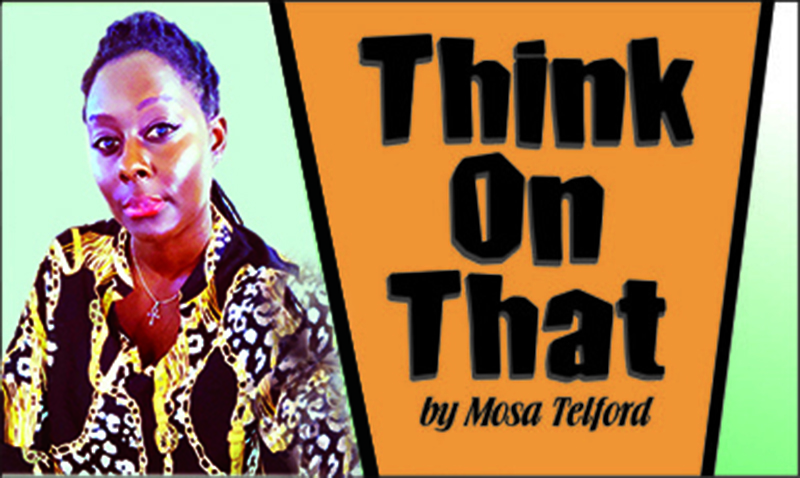In Matthews Ridge at an abandoned airstrip 4.4 tonnes (8,000 pounds) of cocaine was found buried. Daily revelations about what is done in the dark coming to light would have many concluding that Guyana is a hub for some of the most corrupt practices in this part of the world. But is there outrage and loud calls for accountability? Few voices seem to be raised loud enough to be heard. Perhaps people are afraid. Guyana’s plight deepens and if our collective resistance does not evolve beyond whispers, what will become of us?
Eight thousand pounds of cocaine resting in Guyana’s soil is not a discovery that should be taken lightly by the populace. We should not be comfortable with these revelations and the disgrace it brings to our country.
Oil has brought the world to our doorsteps. They step here hoping to stand in the prosperous light, will take whatever they can, but will also judge us. Perhaps we are not concerned with how we are perceived by the rest of the world once the small percentage of the only lives that seem to matter here continue to stand in their delusions about superiority because of money and power.
We the ordinary people do not see the secret meetings and handshakes that make this country a place where drug lords and their associates feel comfortable trafficking drugs. We may never know how deep it runs, but questions will linger. Who owned the eight thousand pounds? Who knew about it? How long it extends the growing rope of corruption?
The illegal drug trade has been a part of Guyana’s story for decades. We have seen Guyanese who were convicted for drug trafficking and there are also whisperings about the ones who have never seen prison walls. From the small man looking for his day of glory to the hidden faces of drug lords, the sweet spots where they gather produce ill-gotten wealth. These drugs are also linked to violent crimes, organised crimes, and white collar crimes. We have also seen devastating results for people who become addicted. How are we comfortable when eight thousand pounds of cocaine can be discovered in our soil and there are more questions than answers?
We heard from the Customs Anti-Narcotic Unit (CANU) director James Singh that most of the people involved are foreign nationals. It was also said that locals who perhaps assisted are being investigated.
The Guyanese people seemed to have been conditioned into a state of passivity. We seem comfortable watching the moral decline of our country. It is not only that many seem powerless in wanting to challenge those in positions of power, but many seem to have lost hope that better will come in this country.
Within the last few years, there have been several drug busts that have occurred in our country or that were linked to our country.
In 2020 11.5 tonnes (23000 pounds) of cocaine were said to be shipped from Guyana in container of scrap metal. It was announced by Belgian authorities to be the largest ever overseas drug bust in the world. The cocaine was said to have left a port in Guyana in October. Belgian authorities were able to track the drugs after the dismantlement of a drug trafficking gang which resulted in the arrest of more than twenty people including police officers, a lawyer, and a port manager. Two persons were arrested in Guyana including the shipper.
In 2020 it was also reported that two planes were found with kilos of cocaine at Issano, Region 7. Three foreign nationals were on board and a body was also found. In 2021, it was reported that a foreign registered four-seater aircraft made an emergency landing in Orealla. On the aircraft the police found 453 packages containing 453 kilograms of cocaine. Also, in 2021 an aircraft was found abandoned and burnt along a trail in Kwakwani.
In 2022 another foreign aircraft landed illegally in Mahdia. Parcels of cocaine were found on the aircraft and two foreigners were arrested.
In 2023 in a Spain-bound fishing boat a tonne of cocaine was found. The boat was registered to a port in Guyana. Four Guyanese and two Albanians were arrested.
Why do these foreign nationals feel so comfortable shipping drugs from our country, landing with drugs in our country or burying drugs in our country? How are they so emboldened to think that these 83,000 square miles are a welcoming path for the illicit drug trade? What do the foreigners know that we do not know?
I often think about the Guyana our children will inherit. Will they inherit a country of peace and happiness? When the oil has depleted and the super-rich have sailed off into the sunset or have been buried or burned without the wealth that cost lives and peace of mind, what will Guyana be?
There needs to be a change in the culture of this country. We cannot continue to ignore, excuse, or encourage corrupt practices and think that there will be miraculous changes.
A country should grow stronger with every generation. What is Guyana’s current trajectory? A country of beautiful roads, monuments, bridges, and hotels, but a neglected population?
Our children should not see the path of corruption and destruction as an option for their survival. Guyana has enough resources that our people should not have to be involved in the illegal drug trade. Desperation should not drive our people to crime.
However, this is the reality for some of our people. There are also those who are simply brutal and greedy and will never be satisfied with what they have, ill-gotten or not. They will risk it all for the millions that come with eight thousand pounds of cocaine and some of them will never be prosecuted.





